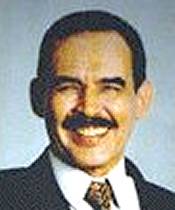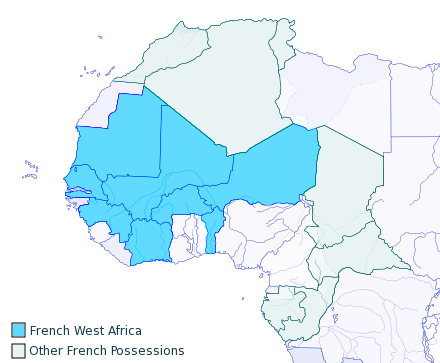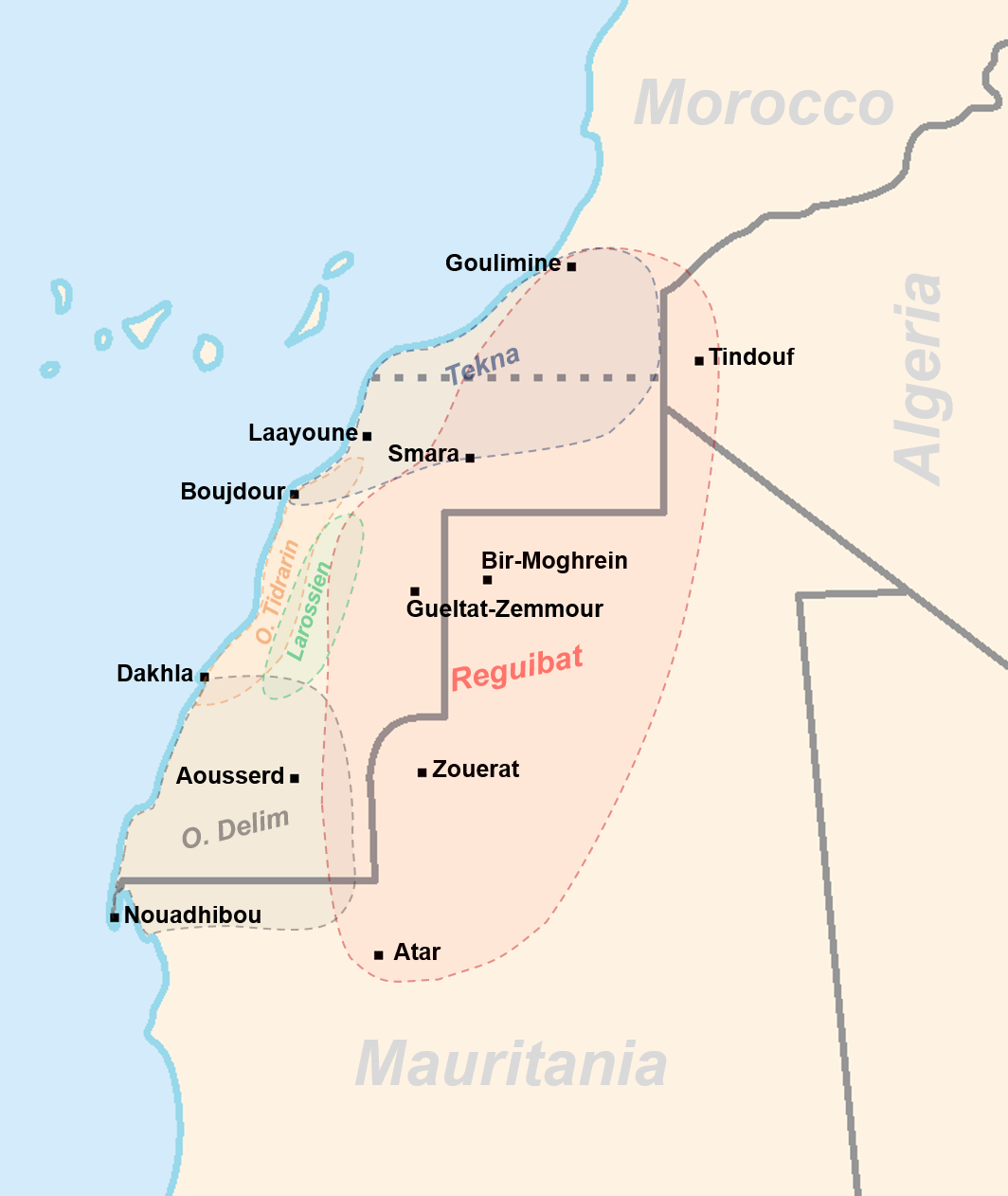|
Military Committee For National Salvation
The Military Committee for National Salvation ( ar, المجلس العسكري للخلاص الوطني; french: Comité Militaire de Salut National, CMSN) was a military government of Mauritania that took power in the 1979 coup d'état. It was installed by Mohamed Khouna Ould Haidalla, Ahmed Ould Bouceif and fellow officers, in an internal regime/military coup on April 6, 1979, removing Colonel Mustafa Ould Salek of the Military Committee for National Recovery (CRMN) from effective power. He was replaced by Mohamed Mahmoud Ould Louly in June 1979. Haidalla would later emerge as the main military strongman, and go on to assume full powers in the 1980 coup d'état, only to be deposed by Colonel Maaouya Ould Sid'Ahmed Taya in the 1984 coup d'état. The CMSN remained as an institution until 1992, when Ould Taya introduced a democratic multi-party system following the 1991 constitutional referendum – he himself lost power only in the 2005 coup d'état. The main achievement of t ... [...More Info...] [...Related Items...] OR: [Wikipedia] [Google] [Baidu] |
Politics Of Mauritania
The first fully democratic Presidential election since 1960 occurred on 11 March 2007. The election was the final transfer from military to civilian rule following the military coup in 2005. This was the first time the president was selected by ballot in the country's history. The election was won by Sidi Ould Cheikh Abdallahi, who was ousted by a military coup in 2008 and replaced by general Mohamed Ould Abdel Aziz. Personalities have long exercised an important influence in the politics of Mauritania - the effective exercise of political power in the country depends on control over resources; perceived ability or integrity; and tribal, ethnic, family, and personal considerations. Conflict between white Moor, black Moor, and non-Moor ethnic groups, centering on language, land tenure, and other issues, continues to pose challenges to the idea of national unity. Political administration The government bureaucracy comprises traditional ministries, special agencies, and parastatal ... [...More Info...] [...Related Items...] OR: [Wikipedia] [Google] [Baidu] |
2005 Mauritanian Coup D'état
The 2005 Mauritanian coup d'état was a military coup that took place in Mauritania on 3 August 2005. The President Maaouya Ould Sid'Ahmed Taya was ousted by the Armed Forces of Mauritania and replaced by the Military Council for Justice and Democracy (CMJD), headed by Ely Ould Mohamed Vall, while Taya was in Saudi Arabia attending the funeral of King Fahd of Saudi Arabia. A constitutional referendum, parliamentary and presidential elections were scheduled and the coup leaders vowed not to contest any of the elections. The military government ended with the presidential election on 11 March 2007 as promised. Background Maaouya Ould Sid'Ahmed Taya had reigned over Mauritania since he had taken power from Mohamed Khouna Ould Haidalla in a bloodless coup d'état in December 1984. Mauritania had also seen coup attempts in June 2003 and August 2004. The 2003 attempt had been led by Saleh Ould Hanenna, and the August 2004 attempt was allegedly led by army officers hailing from Han ... [...More Info...] [...Related Items...] OR: [Wikipedia] [Google] [Baidu] |
History Of Mauritania
The original inhabitants of Mauritania were the Bafour, presumably a Mande ethnic group, connected to the contemporary Arabized minor social group of '' Imraguen'' ("fishermen") on the Atlantic coast. The territory of Mauritania was on the fringe of geographical knowledge of Libya in classical antiquity. Berber immigration took place from about the 3rd century. Mauritania takes its name from the ancient Berber kingdom and later Roman province of Mauretania, and thus ultimately from the Mauri people, even though the respective territories do not overlap, historical Mauritania being considerably further north than modern Mauritania. The Umayyads were the first Arab Muslims to enter Mauritania. During the Islamic conquests, they made incursions into Mauritania and were present in the region by the end of the 7th century. Many Berber tribes in Mauritania fled the arrival of the Arabs to the Gao region in Mali. The European colonial powers of the 19th century had little interest ... [...More Info...] [...Related Items...] OR: [Wikipedia] [Google] [Baidu] |
High Council Of State (Mauritania)
The High Council of State ( ar, المجلس الأعلى للدولة; french: Haut Conseil d’État) was the supreme political body of Mauritania. It served as the country's interim government following the coup d'état which ousted the President, Sidi Ould Cheikh Abdallahi on August 6, 2008. It was led by General Mohamed Ould Abdel Aziz. After seizing power it quickly pledged to hold elections "in the shortest possible period". A few days after seizing power, Abdel Aziz named Mauritanian Ambassador to Belgium and the European Union, Moulaye Ould Mohamed Laghdaf, as Prime Minister."Mauritanian coup leaders name PM" Al Jazeera, August 14, 2008. On April 15, 2009 Ould Abdel Aziz resigned as President of the High Council of State in order to stand as a candidate in the [...More Info...] [...Related Items...] OR: [Wikipedia] [Google] [Baidu] |
Military Council For Justice And Democracy
The Military Council for Justice and Democracy ( ar, المجلس العسكري للعدالة والديمقراطية; french: Conseil Militaire pour la Justice et la Démocratie, CMJD) was a supreme political body of Mauritania. It served as the country's interim government following the coup d'état which ousted the President Maaouya Ould Sid'Ahmed Taya on 3 August 2005."Army seizes power to end "totalitarian regime"" IRIN, August 3, 2005. It was led by the former director of the national police force, . [...More Info...] [...Related Items...] OR: [Wikipedia] [Google] [Baidu] |
Mauritania–Morocco Relations
Mauritania and Morocco are both in the Maghreb, in West Africa. The two countries have bordered each other since 1975, when Spain abandoned the Western Sahara most of which is now de facto under Moroccan control. The sovereignty of this territory remains disputed. History Moroccan claims, especially within the Istiqlal party, of Greater Morocco, which would include the entirety of Mauritania were quickly shelved. But the looming question of Western Saharan independence has been the major subject in the relationship of these two countries. Prior to the December 1984 coup that brought Maaouya Ould Sid'Ahmed Taya to power, the Mauritanian-Moroccan co-operation agency stated that relations between the two countries were on the mend in spite of alleged Moroccan complicity in a 1981 coup attempt and Mauritania's subsequent turn toward Algeria. Representatives from both sides initiated a series of low-level contacts that led to a resumption of full diplomatic ties in April 1985. For Ma ... [...More Info...] [...Related Items...] OR: [Wikipedia] [Google] [Baidu] |
Sahrawi People
The Sahrawi, or Saharawi people ( ar, صحراويون '; es, Saharaui), are an ethnic group and nation native to the western part of the Sahara desert, which includes the Western Sahara, southern Morocco, much of Mauritania, and along the southwestern border of Algeria. They are of mixed Berber, Arab and Black African descent. As with most peoples living in the Sahara, the Sahrawi culture is a mix of Arab and indigenous African elements. The modern Sahrawi culture consists of a Berber core and considerable Arab influences. Sahrawis are composed of many tribes and are largely speakers of the Hassaniya dialect of Arabic. Etymology The Arabic word ' literally means "Inhabitant of the Desert". The word Sahrawi is derived from the Arabic word ' (), meaning desert. A man is called a "Sahrawi", and a woman is called a "Sahrawiya". In other languages it is pronounced in similar or different ways: * Berber: ''Aseḥrawi'' or ''Aneẓrofan'' * English: ''Sahrawi'' or ''Sahar ... [...More Info...] [...Related Items...] OR: [Wikipedia] [Google] [Baidu] |
Tiris Al-Gharbiyya
Tiris al-Gharbiyya ( ar, تيرس الغربية, links=, lit=Western Tiris, translit=Tīris al-Ġarbiyya) was the name for the area of Western Sahara under Mauritanian control between 1975 and 1979. Background Mauritania annexed the southern third of the former Spanish colony of Spanish Sahara in 1975 after the Madrid Accords, with Morocco taking the northern two-thirds (Saguia el-Hamra and the northern half of Río de Oro) as its Southern Provinces. Both countries claimed historical rights over the area, while the United Nations demanded that the indigenous population ( Sahrawis) had a right to self-determination, and should be allowed to decide through a referendum whether the territory should join either of the neighbouring states, or be established as an independent country. The latter was the preferred option of the Polisario Front, a Sahrawi organization which turned its guerrilla forces against both countries, having until then fought Spain. Its attacks against Mauri ... [...More Info...] [...Related Items...] OR: [Wikipedia] [Google] [Baidu] |
Annexation
Annexation (Latin ''ad'', to, and ''nexus'', joining), in international law, is the forcible acquisition of one state's territory by another state, usually following military occupation of the territory. It is generally held to be an illegal act.: "Annexation means the forcible acquisition of territory by one State at the expense of another State. It is one of the principal modes of acquiring territory... in contrast to acquisition a) of terra nullius by means of effective occupation accompanied by the intent to appropriate the territory; b) by cession as a result of a treaty concluded between the States concerned (Treaties), or an act of adjudication, both followed by the effective peaceful transfer of territory; c) by means of prescription defined as the legitimization of a doubtful title to territory by passage of time and presumed acquiescence of the former sovereign; d) by accretion constituting the physical process by which new land is formed close to, or becomes attached to ... [...More Info...] [...Related Items...] OR: [Wikipedia] [Google] [Baidu] |
Río De Oro
Río de Oro (Spanish for "Gold River"; , ''wādī-að-ðahab'', often transliterated as ''Oued Edhahab'') was, with Saguia el-Hamra, one of the two territories that formed the Spanish province of Spanish Sahara after 1969; it had been taken as a Spanish colonial possession in the late 19th century. Its name seems to come from an east–west river which was supposed to have run through it. The river was thought to have largely dried out – a wadi, as the name indicates – or have disappeared underground. The Spanish name is derived from its previous name ''Rio do Ouro'', given to it by its Portuguese discoverer Afonso Gonçalves Baldaia in 1436. The Portuguese prince Henry the Navigator dispatched a mission in 1435, under Gil Eanes and Baldaia, to find the legendary River of Gold in western Africa. Going down the coast, they rounded the al-Dakhla peninsula in present-day Western Sahara and emerged into an inlet, which they excitedly believed to be the mouth of the River of G ... [...More Info...] [...Related Items...] OR: [Wikipedia] [Google] [Baidu] |
Western Sahara War
The Western Sahara War ( ar, حرب الصحراء الغربية, french: Guerre du Sahara occidental, es, Guerra del Sahara Occidental) was an armed struggle between the Sahrawi indigenous Polisario Front and Morocco from 1975 to 1991 (and Mauritania from 1975 to 1979), being the most significant phase of the Western Sahara conflict. The conflict erupted after the withdrawal of Spain from the Spanish Sahara in accordance with the Madrid Accords (signed under the pressure of the Green March), by which it transferred administrative control of the territory to Morocco and Mauritania, but not sovereignty. In late 1975, the Moroccan government organized the Green March of some 350,000 Moroccan citizens, escorted by around 20,000 troops, who entered Western Sahara, trying to establish a Moroccan presence. While at first met with just minor resistance by the Polisario Front, Morocco later engaged a long period of guerrilla warfare with the Sahrawi nationalists. During the late 1970 ... [...More Info...] [...Related Items...] OR: [Wikipedia] [Google] [Baidu] |
Moktar Ould Daddah
Moktar Ould Daddah ( ar, مختار ولد داداه, Mukhtār Wald Dāddāh; December 25, 1924 – October 14, 2003) was a Mauritanian politician who led the country after it gained its independence from France. Daddah served as the country's first Prime Minister from 1957 to 1961 and as its first President of Mauritania, a position he held from 1960 until he was deposed in a military coup d'etat in 1978. He established a one-party state, with his Mauritanian People's Party being the sole legal political entity in the country, and followed a policy of "Islamic socialism" with many nationalizations of private businesses. In his memoirs, Daddah expressed concern that the issue of slavery in Mauritania could lead to armed conflict that would ultimately destroy the country. In foreign affairs, he joined the Non-Aligned Movement and maintained strong links with Mao Zedong and the People's Republic of China, but he also accepted Western (especially French) foreign aid. During his ... [...More Info...] [...Related Items...] OR: [Wikipedia] [Google] [Baidu] |




